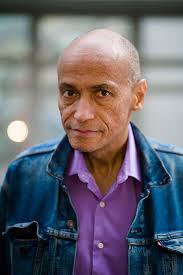 An excellent Twitter thread by the philosopher Liam Kofi Bright from a few days ago pushed me to belatedly begin to learn more about the work of Charles W. Mills. Mills is a political philosopher well-known for his work critiquing contractarian theory for its blindness to race.[1] I was generally familiar with this work, but I have frankly never found much of interest in contractarian theory and so have never felt impelled to read Mills—or his sometime co-author Carole Pateman—closely or in depth.[2]
An excellent Twitter thread by the philosopher Liam Kofi Bright from a few days ago pushed me to belatedly begin to learn more about the work of Charles W. Mills. Mills is a political philosopher well-known for his work critiquing contractarian theory for its blindness to race.[1] I was generally familiar with this work, but I have frankly never found much of interest in contractarian theory and so have never felt impelled to read Mills—or his sometime co-author Carole Pateman—closely or in depth.[2]
Bright’s explanation of how Mills’s work can be divided into three interlocking projects, however, makes an excellent case for reading him not just as a critic of one particular tradition in political philosophy, but as a thinker whose insights into liberalism and democracy penetrate much deeper into both concepts. Bright identifies “(1) a metaphilosophical project, (2) a descriptive project, and (3) a prescriptive project.”
By the first, Bright means that Mills has a particular conception of “the task of political philosophy,” and that is “to generate theories and conceptual apparatus which help us identify the actual injustices of both our present society and the history leading up to now, and then having done so [to] point us in the direction of doing better.” This commitment to what political philosophy is supposed to be doing leads directly, then, to what Mills has actually done, which is to describe those things out there in society and in the history of our society which should be called injustices. Mills has specialized in describing the underlying intellectual structures comprising what he calls the “racial contract,” which Bright explains as “the gradual development and adoption of various compacts among European colonial powers to arrange hierarchical social orders both within various colonies and on the world stage taken as a whole that would tend to give advantage to white people qua white people and exploit the labour and resources of everyone else purely to the benefits of white people.” One particularly sinister and particularly effective element of this structure is the production of ignorance among white people of the existence of the structure itself—part of the process of agreeing to the racial contract, in other words, is agreeing to forget that the contract exists. “As such,” Bright notes, “Mills has been very interested in cognitive biases, constructing ideas of race itself, educational policies, and elements of historiography, which suggest there has been whitewashing or, as he puts it, motivated irrationality in dealing with the facts.”
You can probably see why such a description of Mills’s project would interest an intellectual historian—Mills’s work is itself doing a kind of intellectual history, even more so—perhaps much more so—than other political philosophers.
I thus intend this to be the first of a series of posts that will simply track my exploration of Mills’s work. I don’t mean for this series to be systematic or even tightly coherent, but rather to be opportunistic in picking and choosing essays or passages that interest me and that seem like they’d have something to offer readers of this blog.
I skipped discussing the third component of Mills’s work, his prescriptive project, because that will be the subject of my next post, and I’ll be looking at Mills’s essay “Occupy Liberalism! Or, Ten Reasons Why Liberalism Cannot Be Retrieved for Radicalism (And Why They’re All Wrong).”[3]
Notes
[1] Sam Hoadley-Brill retweeted Bright’s thread with his own excellent comments.
[2] While I find contractarian theory (e.g., Rawls) exceedingly tedious, that does not extend to histories of that political philosophical discourse. Two exemplary treatments of Rawls can be found in Katrina Forrester, In the Shadow of Justice: Postwar Liberalism and the Remaking of Political Philosophy (Princeton, 2019) and Anne Kornhauser, Debating the American State: Liberal Anxieties and the New Leviathan, 1930-1970 (Philadelphia, 2015).
[3] In Radical Philosophy Review 15.2 (2012): 305-323.

0